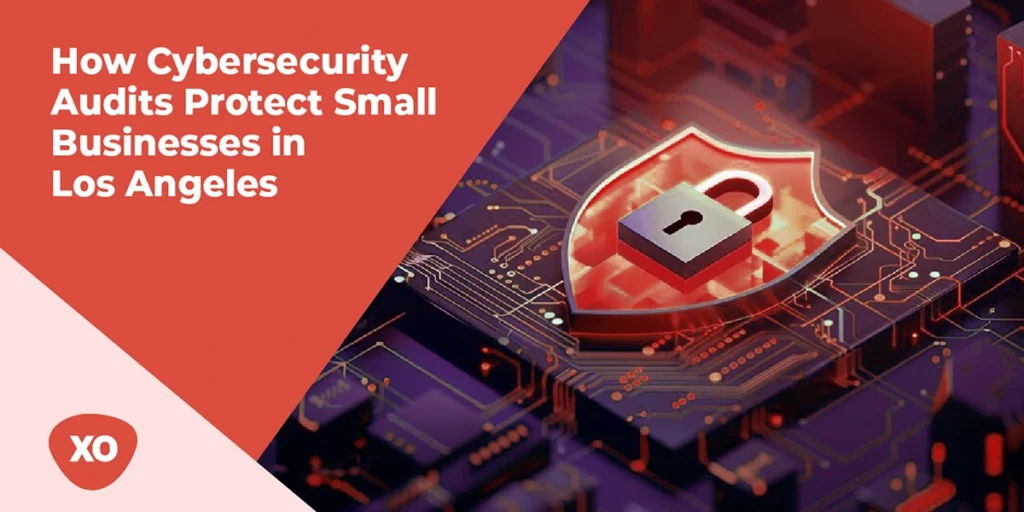As cybersecurity threats become more sophisticated, the importance of a comprehensive approach to safeguarding your business cannot be overstated. Many Los Angeles businesses are turning to Cybersecurity Services to fortify their defenses, but a common oversight is the role of hardware in a robust cybersecurity strategy.
While software solutions like antivirus programs and firewalls often dominate the conversation, hardware components play a crucial role in protecting sensitive data and ensuring the overall integrity of your network. This is why working with a Cybersecurity Consultant for Los Angeles businesses who understands the interplay between hardware and software is vital for creating a truly secure environment. The stakes are high, and without the right hardware, your business could be left vulnerable to breaches that software alone can’t prevent.
With many Los Angeles businesses moving operations online, cybersecurity is more important than ever. Cyber attacks reportedly cost companies $5.2 billion worldwide. 43% of these attacks target small businesses, but studies show that only 14% of them are prepared for this sort of attack. Because of this, 60% of those affected by cyber breaches go out of business within six months.
Cybersecurity is extremely important for Los Angeles businesses. Not only does it keep all of the business’ and clients’ data secure, but it is an investment that protects your company from malicious hackers. Something that people don’t realize though is that hardware plays as much of a role in cybersecurity as software does.
Hardware Vulnerability
There are many ways hardware can be used to protect data. One example of this is the use of firewalls. While some might think that firewalls are lines of code that protect your system from malware and breaches, firewalls can also be physical devices that serve as gateways to prevent untrusted sources from entering a private network. Using firewalls can have many benefits like filtering content, preventing phishing attacks, blocking data outflow, preventing malicious traffic, and alerting networks with regards to dubious activity.
It is important to choose the right hardware when you are creating your cybersecurity system. Consider what you want to achieve with your system and the hardware you choose to accommodate those goals. You should also factor in the potential that hardware could be compromised.
When software get bugs, developers can fix them with constant updates. When hardware is vulnerable, it becomes easy for hackers to exploit. An example of this is a processor vulnerability that leaves a computer’s memory and data accessible to those outside your network. This will render encryption useless. This type of problem is rooted in the processor’s Converged Security Management Engine and it allows data to be compromised at a hardware level.
However, not all hardware will have the same level of vulnerability. Though potential flaws in chips can lead to security issues, using equipment with high density interconnect designs (HDI) for your printed circuit boards (PCBs) is ideal. HDI PCB designs push the limits of trace, via, and layer density, and these boards have high layer counts with very small traces and vias. This allows the PCB to work at higher speeds. They are also highly reliable and have increased signal integrity which is why they can process data at fast speeds. Integrating hardware that uses HDI PCBs into your cybersecurity system will help lessen the system’s overall vulnerability, making a system less susceptible to breaches and attacks.
An additional way you can prevent hardware vulnerability would be by integrating Hardware Security Modules – these are systems that are put in place to encrypt, decrypt, and authenticate data from various sources in a system. This will help in ensuring that your data remains secure.
Integrating Hardware in Your Cybersecurity System
The first thing you should do is understand why you want to have a cybersecurity system, what you want to defend yourself against, and what data you are protecting. Different materials have different uses so it is always important to consider what you need a particular component for.
This can be confusing for many as it is a very technical topic, so it may be best to work with a trusted IT service provider because this is a task for specialists. These are experts are knowledgeable in their field and will be able to determine what exactly your cybersecurity system might need. Many companies will offer a consultation and assessment before you sign up to their services.
If you are integrating hardware into an existing system, make sure the products you choose are compatible with the software you are already using. This will ensure that you will not have to make any major changes in your security, which may lead to unnecessary costs.
Incorporating the right hardware into your cybersecurity strategy is not just a technical necessity but a critical business decision. As you consider how best to protect your company, it’s essential to recognize that the strength of your cybersecurity infrastructure hinges on both software and hardware working in tandem. Cybersecurity Services in Los Angeles can help ensure that this balance is achieved effectively.
Cybersecurity Companies in Los Angeles offer the expertise needed to evaluate and implement the hardware solutions that best fit your business needs. By ensuring that your hardware is as secure and up-to-date as your software, you can significantly reduce the risk of cyber attacks. Ultimately, a well-rounded cybersecurity strategy that includes robust hardware defenses will provide your business with the resilience needed to thrive in an increasingly digital landscape.
Cybersecurity is becoming increasingly important in today’s world. Integrating hardware into your systems will allow them to be stronger and more reliable in protecting you and your company.




